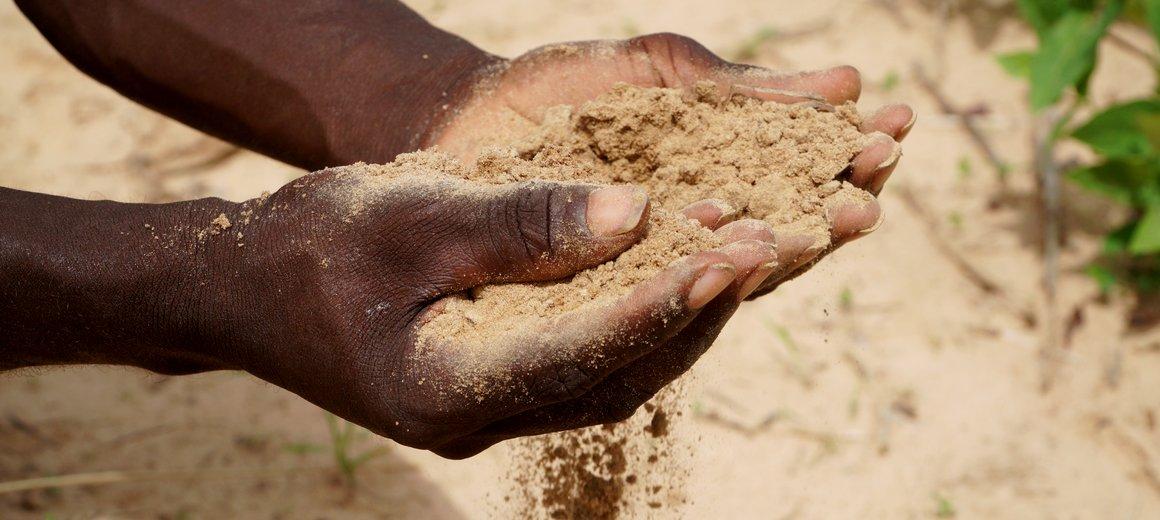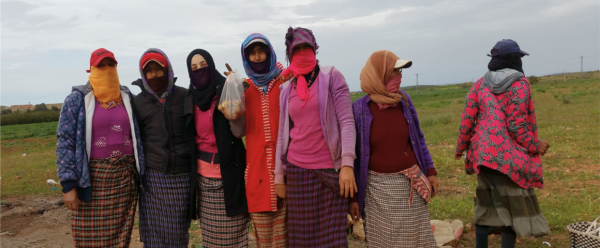Just out 30 January 2026
- Home
- CIRAD news
- News
- Healthy soils for low-carbon food systems
Healthy soils for carbon-neutral food systems

A farmer in central Senegal observing how little organic matter the soil in his field contains © CIRAD, C. Dangléant
"Business as usual strategies for agriculture, land use and land use changes will impede the contribution of the food systems to the net zero CO2 emission ambition", the scientists say in their policy brief.
According to them, the concept of soil health is key to transforming food systems to contribute to achieving the target of zero net CO2 emissions.
Soil health is the continued capacity of soils to function as a vital living part of the ecosystem that sustains services.
The experts make 11 recommendations, split between four pillars:
Healthy soils make food systems sustainable
- Reduce degradation and restore soil health: care is better than cure.
- Assess current soil health conditions to design appropriate food systems transformation planning: doing the right thing at the right place.
Agroecological practices make soils healthy
- Disseminate and scale-up agroecological practices and approaches to leave no one behind.
- Subsidize agroecological transformations in the long term.
- Anchor agroecological transformative pathways in public policies.
- Thoroughly document the impacts of agroecological practices.
Local co-design makes practices more effective
- Strengthen the multi-stakeholder arena where: consultation tools are implemented (participatory science, living labs, decision-making tools); the skills of all the stakeholders are strengthened to stimulate interdisciplinarity and multi-stakeholder dialogue; public-private partnership is being stimulated.
Science-based methodologies make transformation assessment reliable
- Develop metrics and associated MRV tools by gathering expertise and experience from scientists, policymakers, and other stakeholders (smallholder farmers and other stakeholders).
- Develop ad hoc methodologies, indicators, and metrics to effectively communicate the concept of soil health to a wide audience.
- Address data and research gaps.
- Make stakeholders account for uncertainties as part of the decision process.
Strengthening science-policy-society interface and investing in knowledge-based solutions are the core of the recommendations.
Soil health at COP28
Meet the scientists at COP28, at a side event entitled Soil health: the key to sustainable development. The event is being organized by CIRAD, in partnerships with IRD, in the France Pavilion from 9:30 to 11:00 on Friday 8 December.


